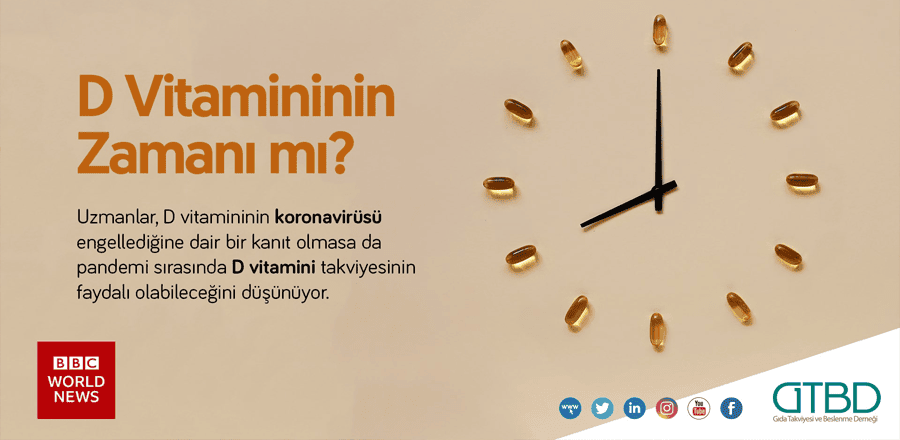Coronavirus and Vitamin D
The Public Health Centre in England has expressed concern that vitamins are not being taken enough as more people are advised to stay at home as part of the coronavirus process. For this reason, while the coronavirus epidemic continues, it is recommended to take daily vitamin D supplements, especially during the spring and summer months.

Who Needs Vitamin D Supplements the Most?
People living in nursing homes and those who spend a lot of time indoors need vitamin D supplements.
Sara Stanner from the British Nutrition Foundation notes that as the coronavirus pandemic continues, many people have limited access to sunlight due to spending less time outdoors. Therefore, people need to be more mindful of maintaining healthy vitamin D levels.
Why Do We Need Vitamin D Supplements?
Vitamin D is crucial for healthy bones, teeth, and muscles. Its deficiency can lead to rickets in children and a similar bone weakness called osteomalacia in adults.
Some studies suggest that while there is no conclusive evidence that vitamin D boosts the immune system, avoiding vitamin D deficiency may help improve our resistance to common colds and flu.
How Should Vitamin D Be Taken?
While vitamin D supplements are very safe, taking more than the recommended amount daily can be dangerous in the long term. Experts recommend:
- Children aged 1-10 years should take no more than 50 micrograms per day,
- Babies (under 12 months) should take no more than 25 micrograms per day,
- Adults should take no more than 100 micrograms per day.
Sometimes, higher doses may be recommended by doctors for patients with chronic vitamin D deficiency.
Does Vitamin D Supplementation Prevent Coronavirus?
There is no evidence that vitamin D supplements prevent coronavirus. However, experts believe that vitamin D supplementation may have benefits during the pandemic.
Some researchers have suggested that vitamin D deficiency in coronavirus-positive patients might be associated with worse outcomes.
In the UK, Professor Jon Jon Rhodes has mentioned studies suggesting that vitamin D has anti-inflammatory effects and might reduce the body’s immune response to viruses.
Spanish and French researchers are still conducting studies on whether vitamin D helps coronavirus patients.
Source: BBC





